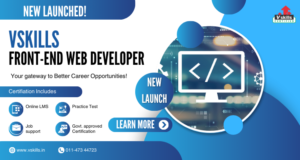A project management interview is a pivotal step in securing a position in the dynamic and demanding field of project management. It’s an opportunity for you to demonstrate your skills, experience, and aptitude for overseeing projects, delivering results, and managing teams. In this article, we will explore essential tips for preparing for a project management interview, and delve into common interview questions you might encounter in the process. Whether you’re a seasoned project manager looking for new opportunities or just entering the field, these insights will help you navigate the project management interview process with confidence.
Tips for Preparing for a Project Management Interview:
- Understand the Job Requirements:
One of the foundational steps in interview preparation is thoroughly understanding the job requirements. Start by carefully reviewing the job description. Pay close attention to the qualifications, skills, and experience the company is seeking. By aligning your understanding of the role with the job requirements, you can tailor your responses to showcase your suitability for the position.
Additionally, consider the specific industry and type of projects the company is involved in. Are they primarily focused on IT projects, construction, marketing campaigns, or a different sector? Understanding the context in which you will be working can help you tailor your responses and demonstrate relevant knowledge.
- Review Your Resume:
Your resume serves as a roadmap of your professional journey. During the interview, you’ll be expected to discuss your work experience, skills, and accomplishments, so it’s crucial to be well-versed in the content of your resume. Review your resume thoroughly and be ready to provide detailed explanations of your roles, achievements, and the impact of your work.
Take note of any quantifiable achievements, such as completing projects ahead of schedule, achieving cost savings, or improving team productivity. Concrete examples of success can help substantiate your claims and make your interview responses more compelling.
- Study the Company:
An important aspect of interview preparation is researching the company you’re interviewing with. Gain a comprehensive understanding of the organization, including its culture, values, mission, and recent achievements. Familiarize yourself with the company’s history and its position in the market. This knowledge will enable you to demonstrate your genuine interest in the company and your alignment with its goals and values.
You should also research the industry in which the company operates. What are the current trends, challenges, and opportunities in that industry? Understanding the broader context can help you speak knowledgeably about the company’s competitive landscape and the specific challenges it might face.
- Know Project Management Methodologies:
Project management encompasses a wide array of methodologies, each suited to different project types and circumstances. It’s essential to have a solid grasp of these methodologies and understand when to apply them. The two most commonly used methodologies are Agile and Waterfall, but others like Scrum, Lean, and Kanban also have their place in the project manager’s toolkit.
Be prepared to discuss your familiarity with these methodologies and provide examples of projects where you’ve applied them. Highlight the benefits and drawbacks of each, as well as the situations in which they are most effective.
- Review Project Management Tools:
In the realm of project management, effective tools are indispensable for planning, tracking, and executing projects. Familiarize yourself with popular project management software and tools such as Microsoft Project, JIRA, Trello, Asana, or others relevant to the job you’re pursuing. Be prepared to discuss your proficiency with these tools and explain how you’ve used them to streamline project management processes.
If the company has specific tools or software that they use, inquire about them in advance, and take some time to become familiar with them if you’re not already. Demonstrating that you can quickly adapt to the company’s preferred tools can be a valuable asset.
These questions touch on key aspects of project management, including scope management, project scheduling, risk management, and the use of tools and methodologies. Be prepared to provide concise and insightful responses to these questions.
- Demonstrate Soft Skills:
While technical skills and knowledge are important, project managers also need to excel in soft skills. Soft skills, including communication, leadership, problem-solving, and adaptability, are crucial for effectively managing teams and navigating the challenges of project management.
During your interview, be prepared to provide examples of how you’ve applied these skills in past roles. Discuss how you’ve communicated with team members and stakeholders, resolved conflicts, motivated your team, and adapted to changing circumstances. Employ the STAR method (Situation, Task, Action, Result) to structure your responses, providing context, detailing your role and actions, and highlighting the positive outcomes.
- Ask Questions:
An interview is a two-way street. It’s not just an opportunity for the employer to assess your fit for the role; it’s also a chance for you to assess whether the company and the role align with your career goals and expectations. Asking thoughtful questions can demonstrate your interest in the position and the company, as well as your engagement in the interview process.
Prepare a list of questions to ask the interviewer. These questions can cover a range of topics, including the company’s culture, the team you would work with, the specific projects you would be involved in, and the company’s expectations for the role. Some example questions might include:
What is the company’s approach to project management, and which methodologies are commonly used?
Can you describe the typical project team structure and the roles and responsibilities of team members?
How does the company prioritize and select projects?
What are the key performance indicators (KPIs) for measuring the success of projects in this organization?
Your questions should be well-informed and demonstrate your understanding of the role and the company. They should also provide insights into whether the company and the role are a good fit for your career goals.
- Stay Calm and Confident:
Interviews can be nerve-wracking, but maintaining a calm and confident demeanor is crucial. Confidence in your abilities and qualifications is essential, but be careful not to appear overconfident or arrogant. Practice relaxation techniques, such as deep breathing, to help manage interview stress. Confidence is rooted in preparation, so the more you’ve prepared and practiced, the more assured you’ll feel during the interview.
It’s also essential to listen actively during the interview. Pay close attention to the questions, and when responding, ensure that you address the
specific points raised. Active listening demonstrates your engagement and ability to understand and respond to the interviewer’s needs.
Now that we’ve covered tips for preparing for a project management interview, let’s explore some common interview questions that you might encounter. These questions touch on a wide range of project management topics and are designed to assess your knowledge, skills, and experience in the field.
Common Project Management Interview Questions:
Can you explain the project management triangle, and how does it relate to your work?
The project management triangle, often referred to as the triple constraint or the iron triangle, represents the interplay between three key project factors: scope, time, and cost. These factors are interrelated, and changes in one can impact the others. For example, increasing the project scope may require more time and resources, potentially affecting the project’s cost. Similarly, imposing a shorter timeline may necessitate scaling back the project’s scope to meet the deadline. It’s important to discuss how you’ve encountered and managed changes in these project elements in your previous roles.
Describe a challenging project you’ve managed and how you overcame the difficulties.
Challenging projects are an inevitable part of a project manager’s career. In responding to this question, share a project that presented significant difficulties, such as scope changes, resource constraints, or unexpected issues. Explain the specific challenges you faced and the steps you took to address them. Discuss how you maintained control over the project, adapted your approach, and ultimately achieved a successful outcome.
Use the STAR method to structure your response:
Situation: Describe the project and the challenges it presented.
Task: Explain your role and responsibilities in managing the project.
Action: Detail the actions you took to address the challenges.
Result: Highlight the positive results and how the project was ultimately successful.
How do you handle scope changes in a project?
Project scope changes are a common occurrence, and how you manage them can significantly impact a project’s success. Share your approach to managing scope changes, including how you assess their impact, document them, and communicate with stakeholders. Emphasize the importance of a formal change control process and discuss how you’ve used it to prevent scope creep and maintain project alignment.
What project management methodologies are you familiar with, and when would you use each one?
Project management methodologies provide structured approaches to managing projects. Common methodologies include Agile, Waterfall, Scrum, Lean, and others. Discuss your knowledge of these methodologies and explain when you would choose one over another based on the specific characteristics and requirements of a project. For example, Agile methodologies are often used for projects where requirements are likely to change, while Waterfall may be suitable for well-defined projects with minimal changes expected.
What is the critical path method, and how is it used in project scheduling?
The critical path method (CPM) is a project scheduling technique used to identify the sequence of tasks that, if delayed, would delay the project’s overall timeline. Explain the concept of CPM and how it is used in project scheduling. Provide an example from your experience to illustrate how CPM helped you manage project timelines and ensure on-time project delivery.
How do you manage project risks and uncertainties?
Risk management is a fundamental aspect of project management. Describe your approach to identifying, assessing, and mitigating project risks. Share examples of how you’ve effectively managed risks to ensure project success. Discuss the importance of creating a risk register, which documents identified risks, their potential impact, and mitigation strategies.
Can you provide an example of a project that was behind schedule or over budget, and how you addressed it?
Managing project schedules and budgets is a core responsibility of a project manager. Share a project that faced schedule or budget challenges and explain the steps you took to bring it back on track. Describe the strategies you employed, including scope adjustments, resource reallocation, or other tactics, to ensure the project met its original objectives.
What project management tools and software are you proficient in?
Project management tools and software are essential for planning, tracking, and executing projects. List the tools and software you are proficient in, such as Microsoft Project, JIRA, Trello, Asana, or others relevant to the job. Explain how you’ve used these tools to streamline project management processes and enhance project visibility and control.
Explain the difference between a project manager and a program manager.
While these roles may appear similar, they have distinct responsibilities and focuses. Differentiate between the roles of a project manager and a program manager. Highlight the key responsibilities and skills associated with each role. For example, project managers are typically focused on delivering individual projects within specific constraints, while program managers oversee a group of related projects to achieve broader strategic objectives.




